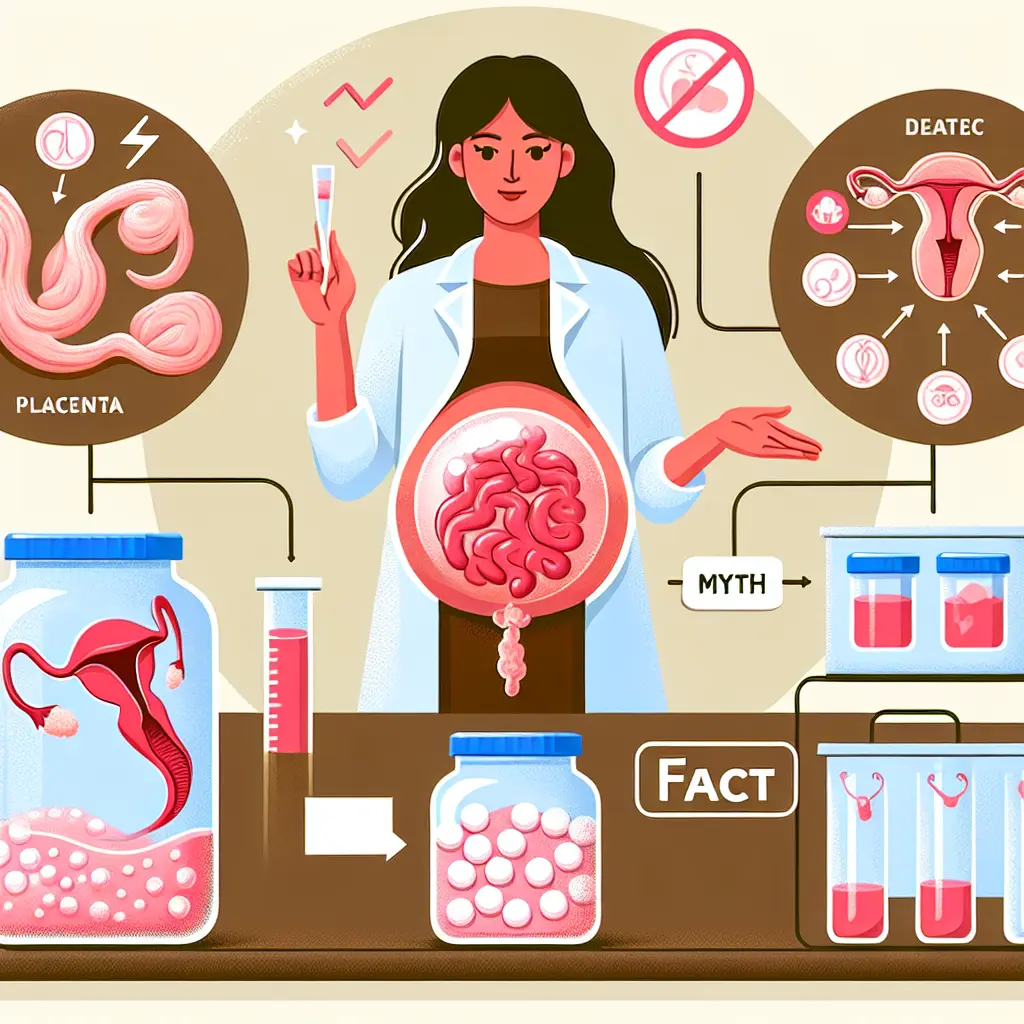
Placenta Encapsulation: Myths and Facts Explained
Placenta encapsulation is a practice that continues to spark intrigue and debate among new parents and health enthusiasts. Despite its growing popularity, numerous myths persist, often overshadowing the scientific understanding of this process. In this section, we'll explore these myths and present facts, ensuring that our readers can make informed decisions about this controversial topic.
Understanding the Basics: What is Placenta Encapsulation?
Before diving into the myths and facts, it's essential to understand the placenta encapsulation process. This involves steaming the placenta, dehydrating it, and grinding it into a powder to fill capsules for consumption. Proponents claim several benefits, such as improved mood and energy levels postpartum. However, understanding the potential risks is crucial to evaluating its overall safety and efficacy.
Myth 1: Placenta Encapsulation is Backed by Extensive Scientific Research
One of the most pervasive misconceptions is that there is robust scientific support for its benefits. In reality, the science remains in its infancy, with limited high-quality research available. Most existing studies are small-scale and lack the rigorous controls needed to draw definitive conclusions.
For example, a 2021 study published in "Frontiers in Women's Health" reviewed several studies on placenta encapsulation but found the evidence insufficient to support many claimed benefits. Without substantial evidence, it is challenging to separate truth from speculation.
Fact: More Research is Needed
The current state of research highlights the need for more comprehensive studies. Understanding the full spectrum of pros and cons requires well-designed trials that examine both physiological and psychological outcomes.
Myth 2: Placenta Encapsulation is Completely Safe
Safety concerns are another significant aspect of the debate. While advocates argue for its safety, critics caution against potential risks due to contamination or improper processing methods. The Centers for Disease Control and Prevention (CDC) released a report in 2017 linking an infant's illness to bacteria found in capsules made from their mother's placenta. This incident underscores the importance of scrutinizing safety protocols.
Fact: Safety Depends on Proper Handling
Ensuring safety involves stringent hygiene standards throughout the process. Choosing a certified professional who follows proper safety guidelines can mitigate some risks, but individuals should weigh these against any potential benefits.
Myth 3: Placenta Encapsulation Guarantees Health Benefits
Some advocates claim that placenta encapsulation offers guaranteed health improvements, such as increased lactation, hormone regulation, and postpartum recovery. However, the scientific backing for these claims is inconsistent at best.
A 2020 review in "The Journal of Obstetrics and Gynaecology" highlighted that while some anecdotal evidence suggests benefits, there is no consensus in the scientific community regarding the efficacy of placenta encapsulation for improving postpartum health.
Fact: Benefits are Subjective and Vary
The perceived benefits are subjective and vary among individuals. Some may experience positive effects due to placebo responses or personal beliefs about the practice.
Myth 4: All Placenta Encapsulation Reviews are Reliable
In today's digital age, it's easy to find numerous reviews online. However, not all of these reviews are reliable or based on factual information. Some are influenced by personal biases or financial incentives.
Fact: Critically Evaluate Information Sources
When researching information, it's crucial to critically evaluate sources. Look for reviews from reputable health organizations or peer-reviewed journals that provide balanced perspectives grounded in scientific research.
The Role of Recent Developments
In recent years, there has been increased interest in studying the physiological effects of consuming human placental tissue. A 2023 study funded by the National Institutes of Health aimed to explore potential hormonal impacts but noted inconclusive results due to sample size limitations.
Moreover, a growing body of research focuses on understanding cultural practices surrounding placenta consumption globally. These studies aim to provide insights into how traditional beliefs influence modern practices and perceptions of health.
Conclusion: Navigating the Complexities of Placenta Encapsulation
Navigating the complexities of placenta encapsulation requires an open mind and a critical approach to evaluating available information. While there are documented cases of individuals reporting positive experiences, these should not be generalized as universal outcomes without adequate scientific backing.
For those considering this practice, engaging with healthcare professionals who can provide personalized advice based on current research is paramount. As we continue to unravel the nuances of this polarizing topic, staying informed about emerging research will be essential for making educated decisions about postpartum health practices.
In conclusion, while placenta encapsulation continues to intrigue many, separating myths from facts is vital for understanding its potential role in postpartum recovery. By examining both historical practices and recent developments, we can strive towards a more informed perspective that respects both individual choices and scientific inquiry.
We invite you to share your thoughts or experiences with placenta encapsulation in the comments below. Your insights could spark valuable conversations and contribute to a broader understanding of this evolving practice.
Remember, knowledge is empowering. By staying informed about emerging research, we can make choices that best support our health and well-being.
Sara Jennings
Thank you for joining us on this exploration of placenta encapsulation. Your engagement enriches the dialogue around postpartum health practices. Stay curious, stay informed, and always prioritize your well-being.